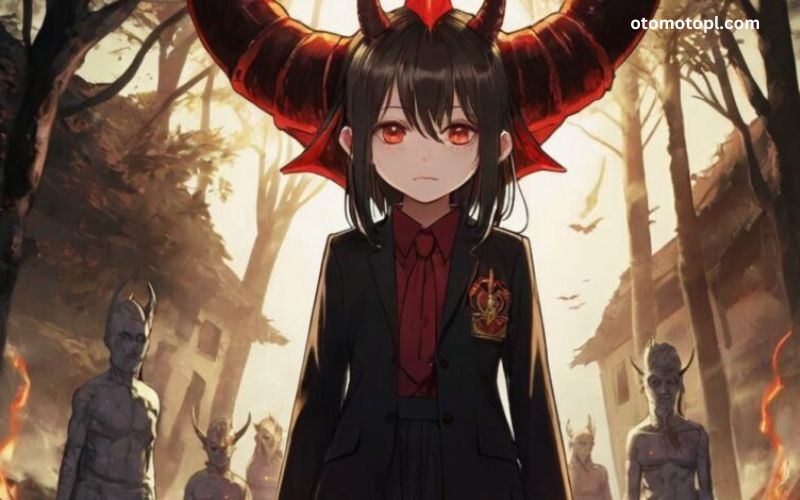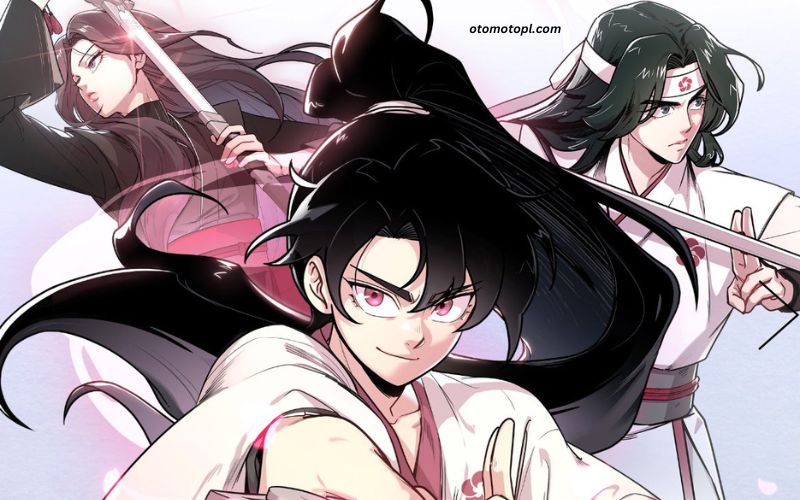“My Daughter is the Demon King When I Was Reincarnated” is a captivating isekai novel that has captured the hearts of readers worldwide. This unique and imaginative story follows the journey of a man who is reincarnated into a fantasy world, only to find himself in an unexpected role as the father of the Demon King. Blending elements of comedy, drama, and heartwarming family dynamics, this novel offers a refreshing take on the classic isekai genre.
As you delve into the world of “My Daughter is the Demon King When I Was Reincarnated,” you’ll be swept away by the engaging plot, relatable characters, and the exploration of themes that challenge traditional isekai tropes. Whether you’re a seasoned isekai enthusiast or new to the genre, this novel is sure to leave a lasting impression on you.
Understanding the Plot and Characters
At the heart of “My Daughter is the Demon King When I Was Reincarnated” is the story of a man named Takeshi, who finds himself reincarnated in a fantasy world. Unexpectedly, he discovers that he is the father of the Demon King, a young girl named Mia. Navigating the complexities of this unexpected role, Takeshi must navigate the challenges of raising a child who is destined to rule over the demon realm.
The novel’s cast of characters is diverse and engaging, each with their own unique personalities and motivations. Mia, the Demon King, is a complex and multifaceted character, possessing both a formidable power and a childlike innocence. Takeshi, the protagonist, must find a way to balance his newfound responsibilities with his desire to protect and nurture his daughter.
As the story unfolds, readers are introduced to a vibrant supporting cast, including Mia’s loyal subordinates, the denizens of the demon realm, and the various factions vying for power in the larger world. Each character adds depth and richness to the narrative, creating a truly immersive reading experience.
Exploring the World of the Novel
The world-building in “My Daughter is the Demon King When I Was Reincarnated” is truly exceptional, transporting readers to a fantastical realm filled with magic, intrigue, and political machinations. The novel’s attention to detail in creating the demon realm and its unique customs, culture, and power structures is truly impressive.
Readers are taken on a journey through the various regions and factions of this vast and complex world, each with its own distinct flavor and challenges. From the towering demon castles to the bustling demon cities, the world of “My Daughter is the Demon King When I Was Reincarnated” is brought to life with vivid descriptions and imaginative storytelling.
One of the standout aspects of the world-building is the way it seamlessly blends the familiar and the fantastical. While the setting is undoubtedly rooted in a fantasy realm, the novel also incorporates elements of modern technology and cultural references, creating a unique and engaging hybrid that feels both grounded and otherworldly.
Themes and Messages in “My Daughter is the Demon King When I Was Reincarnated”
At its core, “My Daughter is the Demon King When I Was Reincarnated” explores a range of thought-provoking themes that elevate the novel beyond a simple isekai adventure. One of the central themes is the idea of family and the bonds that transcend the boundaries of species and societal expectations.
The relationship between Takeshi and Mia is the driving force behind the narrative, as the protagonist navigates the challenges of raising a child who is destined to rule over the demon realm. The novel delves into the complexities of parenting, the importance of unconditional love, and the power of family to overcome even the most daunting obstacles.
Another prominent theme is the exploration of power, responsibility, and the nature of leadership. As the Demon King, Mia wields immense power, but the novel examines the weight of that responsibility and the challenges of wielding authority in a world filled with political machinations and conflicting agendas.
Through the interactions between Takeshi, Mia, and the various factions of the demon realm, the novel offers thought-provoking insights into the nature of power, the importance of empathy and compassion in leadership, and the delicate balance between personal desires and the greater good.
Popular Fan Theories and Discussions
The rich and complex world of “My Daughter is the Demon King When I Was Reincarnated” has spawned a vibrant fan community, with readers engaging in lively discussions and formulating intriguing theories about the novel’s plot and characters.
One of the most popular fan theories revolves around the origins of Takeshi’s reincarnation and the deeper significance of his role as the Demon King’s father. Readers have speculated about the possibility of a greater cosmic or divine plan at work, with some suggesting that Takeshi’s presence in the demon realm is not mere chance, but rather a carefully orchestrated event with far-reaching implications.
Another area of intense fan discussion is the nature of the demon realm itself and the various factions and power structures that govern it. Readers have delved deep into the lore, analyzing the political and social dynamics, as well as the potential for future conflicts and alliances that could shape the course of the story.
The complex and multifaceted characters of “My Daughter is the Demon King When I Was Reincarnated” have also sparked countless debates and fan theories. Readers have explored the depths of Mia’s character, speculating about her true motivations, the extent of her powers, and the potential for her to evolve and challenge the traditional role of the Demon King.
Comparisons to Other Similar Novels or Anime Series
While “My Daughter is the Demon King When I Was Reincarnated” is a unique and innovative work, it shares certain thematic and narrative elements with other popular isekai novels and anime series. Readers who enjoy this novel may also find themselves drawn to similar works that explore the concept of reincarnation, the challenges of navigating a fantastical world, and the dynamics of unconventional family structures.
One notable comparison that has been drawn is to the popular anime series “Konosuba: God’s Blessing on This Wonderful World!” Both works feature a protagonist who is unexpectedly thrust into a fantasy realm and must navigate the challenges of their newfound circumstances, often with a quirky and endearing cast of supporting characters.
Another parallel that has been drawn is to the light novel series “Overlord,” which also explores the concept of a powerful, seemingly villainous protagonist who must grapple with their newfound responsibilities and the complexities of wielding immense power. Readers who appreciate the political intrigue and world-building aspects of “My Daughter is the Demon King When I Was Reincarnated” may find themselves drawn to the similar themes and narrative elements in “Overlord.”
The Impact of “My Daughter is the Demon King When I Was Reincarnated” on the Isekai Genre
“My Daughter is the Demon King When I Was Reincarnated” has made a significant impact on the isekai genre, offering a fresh and innovative take on a well-established trope. By subverting traditional isekai narratives and exploring the complexities of family dynamics and power structures, the novel has challenged readers’ expectations and pushed the boundaries of the genre.
One of the novel’s most notable contributions to the isekai genre is its exploration of the protagonist’s role as a parent. Rather than the typical isekai protagonist who is a young, adventurous individual, Takeshi’s role as a father adds a unique and compelling layer to the story. This shift in perspective has resonated with readers, who have praised the novel’s ability to blend family-centric themes with the fantastical elements of the isekai setting.
Furthermore, the novel’s nuanced portrayal of the Demon King character has also been praised for its departure from the traditional “evil overlord” archetype. Mia’s complexity, her childlike innocence, and the evolving nature of her relationship with Takeshi have added depth and emotional resonance to the narrative, challenging readers’ preconceptions about the role of the antagonist in isekai stories.
The success of “My Daughter is the Demon King When I Was Reincarnated” has also paved the way for more diverse and unconventional isekai narratives, inspiring other authors to explore alternative perspectives and experiment with the genre’s established tropes. As the isekai genre continues to evolve, the impact of this novel will undoubtedly be felt for years to come.
Merchandise and Adaptations
The popularity of “My Daughter is the Demon King When I Was Reincarnated” has led to the development of a range of merchandise and adaptations, allowing fans to immerse themselves in the captivating world of the novel even further.
One of the most highly anticipated adaptations is the upcoming anime series, which has generated significant buzz among the novel’s fan base. Viewers eagerly await the opportunity to see the vibrant characters and stunning visuals of the demon realm brought to life on the small screen.
In addition to the anime adaptation, the novel has also spawned a series of light novels, manga adaptations, and even official merchandise, such as figurines, plushies, and apparel. These products allow fans to showcase their love for the series and engage with the characters and world in new and exciting ways.
The availability of these various adaptations and merchandise has further solidified the novel’s status as a beloved and influential work within the isekai genre. Fans can now dive deeper into the world of “My Daughter is the Demon King When I Was Reincarnated” through multiple mediums, ensuring that the story and its memorable characters will continue to captivate audiences for years to come.
Community and Fanbase
The passionate fanbase that has emerged around “My Daughter is the Demon King When I Was Reincarnated” is a testament to the novel’s enduring appeal and the power of its storytelling. Across various online platforms and fan communities, readers have come together to discuss, theorize, and celebrate the series, creating a vibrant and engaged ecosystem.
From dedicated subreddits and Discord servers to active social media groups, the fans of “My Daughter is the Demon King When I Was Reincarnated” have built a thriving community that fosters lively discussions, fan art, and creative collaborations. These platforms serve as hubs for readers to share their insights, connect with fellow enthusiasts, and collectively explore the depths of the novel’s rich narrative and world-building.
The fan community’s passion and dedication have also led to the organization of various fan events, such as conventions, meetups, and online watch parties. These gatherings provide opportunities for fans to connect, cosplay as their favorite characters, and immerse themselves in the shared experience of the series.
The strong sense of community and shared appreciation for “My Daughter is the Demon King When I Was Reincarnated” has been a driving force behind the novel’s enduring popularity. As the fanbase continues to grow and evolve, the impact of this captivating isekai story will only continue to expand, inspiring new generations of readers and fans.
Conclusion
“My Daughter is the Demon King When I Was Reincarnated” is a truly remarkable work of fiction that has left an indelible mark on the isekai genre. With its compelling characters, immersive world-building, and thought-provoking themes, this novel offers a refreshing and captivating reading experience that is sure to captivate both seasoned isekai enthusiasts and newcomers to the genre.
If you’re a fan of isekai stories that challenge traditional tropes, explore the complexities of family dynamics, and delve into the nuances of power and leadership, then “My Daughter is the Demon King When I Was Reincarnated” is a must-read. Prepare to be transported to a fantastical realm where the lines between hero and villain are blurred, and the bonds of family transcend the boundaries of species and societal expectations.




